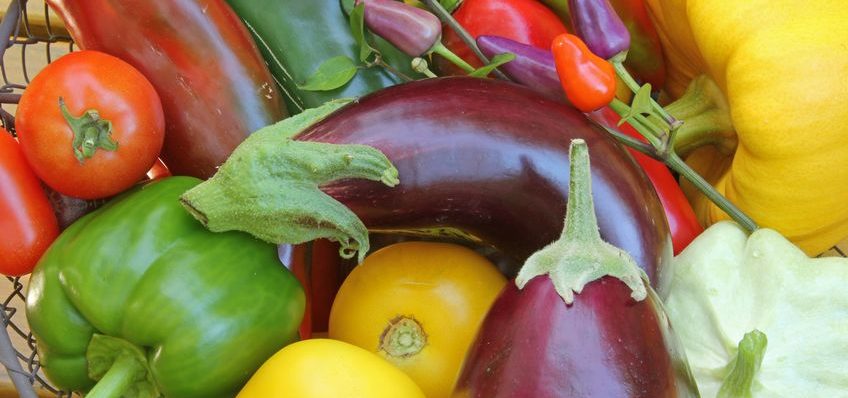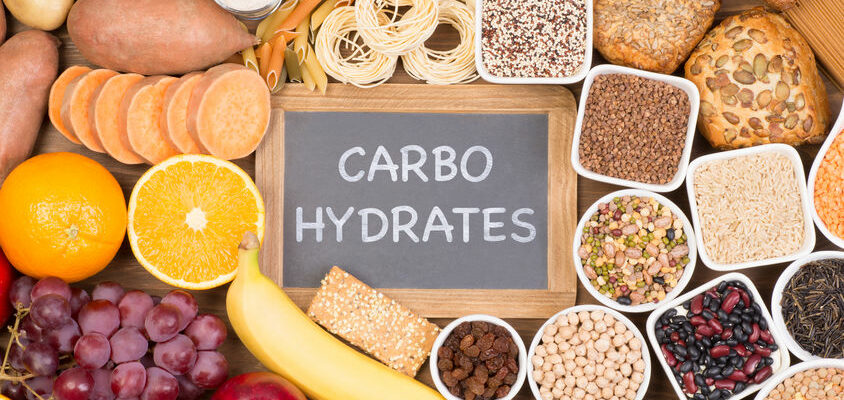
Nightshade refers to foods and spices in the Solanaceae plant family. These foods possess naturally occurring chemical compounds known as alkaloids, which contain nitrogen and can be found in the stems and leaves of nightshades. Some common vegetables in this family include:
- Tomatoes
- Bell pepper
- Eggplant
- White potatoes
- Cayenne pepper
- Paprika
One of the most common alkaloids in nightshade vegetables is solanine. If consumed in large quantities, this alkaloid may be toxic, for instance, in the case of green potatoes. Furthermore, research has shown that there is a connection between solanine and inflammation in the body¹. As a result, nightshade vegetables have earned a negative reputation. However, these vegetables do have some positive health benefits.
Potential health benefits
Nightshade vegetables are actually fruits and offer a variety of nutrients, which can help craft a balanced and varied diet. Bell pepper, for example, is a great source of vitamin C and contains more than the recommended daily dose of this vitamin. Furthermore, besides solanine, tomatoes also contain lycopene, which studies suggest may help decrease certain types of cancer². Additionally, eggplants provide plenty of fiber, which promotes regular bowel movements and may reduce the risk of heart disease³. The skin of potatoes includes potassium, manganese, and vitamin B6.
Associated risks of nightshade vegetables
People with Irritable Bowel Disorder (IBD), which is characterized by inflammation of the digestive tract, can be affected by nightshade vegetables. This disorder is sometimes referred to as intestinal permeability or “leaky gut” and means that the protective lining in the intestines does not function properly, allowing bacteria and other substances to enter the bloodstream. Studies have shown that the alkaloids in nightshade vegetables can further aggravate inflamed intestines⁴. However, it is important to note that the studies used higher concentrations of these alkaloids than are normally found in food. In addition, research shows that there may be a connection between intestinal permeability and autoimmune conditions such as rheumatoid arthritis, multiple sclerosis, and even celiac disease⁵.
Nightshade vegetable allergies
Some individuals may also be allergic to these vegetables and can suffer from an anaphylactic reaction. Common symptoms of an allergic reaction to food are:
- Rash
- Hives
- Mouth-tingling
- Itching
- Swelling of the tongue, throat, or face
- Trouble breathing
- Wheezing
- Gastrointestinal pain
- Dizziness
- Lightheadedness
- Pale skin
- Fainting
If you experience any of these symptoms after consuming nightshade vegetables, you should see a doctor immediately. Food allergies and intolerances continue to skyrocket around the world, and while you may not suffer an anaphylactic reaction, it is still possible to have a nightshade vegetable intolerance. In this case, people commonly experience gastrointestinal discomfort, aches, and pains. Although it is best to seek medical advice, the elimination diet works well to pinpoint the exact food your body cannot tolerate.
Should you avoid nightshade vegetables?
Though these vegetables are nutritious and offer health benefits, they may not be suitable for everyone. People who suffer from autoimmune conditions, such as Irritable Bowel Disorder, or have food intolerances to nightshade vegetables should not consume them. Fortunately, there are easy food swaps for individuals who cannot eat these vegetables. Sweet potatoes, mushrooms, cauliflower, leafy greens, and herbs like basil, rosemary, and thyme are suitable options for anyone looking to decrease their intake of these vegetables without sacrificing nutrients. Moreover, regularly consuming anti-inflammatory foods can also help manage inflammation and mitigate any adverse effects of nightshade vegetables. For anyone who would still like to consume these vegetables, peeling away green skin and fully cooking them can significantly reduce their alkaloid content, making them easier to digest.
For more info, check our Youtube!
References
- Smith, Lori. “Nightshade Vegetables and Inflammation: Do They Affect Arthritis?” Medical News Today, MediLexicon International, 2020, www.medicalnewstoday.com/articles/321745#nightshades-and-inflammation.
- Story, Erica N, et al. “An Update on the Health Effects of Tomato Lycopene.” Annual Review of Food Science and Technology, U.S. National Library of Medicine, 2010, www.ncbi.nlm.nih.gov/pmc/articles/PMC3850026/.
- Jenkins, D J, et al. “Effect of a Very-High-Fiber Vegetable, Fruit, and Nut Diet on Serum Lipids and Colonic Function.” Metabolism: Clinical and Experimental, U.S. National Library of Medicine, Apr. 2001, pubmed.ncbi.nlm.nih.gov/11288049/.
- Patel, Bijal, et al. “Potato Glycoalkaloids Adversely Affect Intestinal Permeability and Aggravate Inflammatory Bowel Disease.” Inflammatory Bowel Diseases, U.S. National Library of Medicine, Sept. 2002, pubmed.ncbi.nlm.nih.gov/12479649/.\
- A, Fasano. “Leaky Gut and Autoimmune Diseases.” Clinical Reviews in Allergy & Immunology, U.S. National Library of Medicine, Feb. 2012, pubmed.ncbi.nlm.nih.gov/22109896/.
Ashuni Pérez is a writer in the culinary, as well as health and wellness industries. With a background in teaching and digital media, she loves to learn and help others discover more about their food, where it comes from, and how best to prepare it. A foodie through and through, she is always searching for new recipes and the freshest ingredients.











[…] Nightshade vegetables, grains, and legumes contain some of the highest concentrations in plant-based foods. However, the human body cannot digest these proteins, so they travel through the digestive tract unchanged. Excessive consumption can even lead to damage to the lining of the gut. It is these traits of these proteins that have led to concerns about consuming them. […]